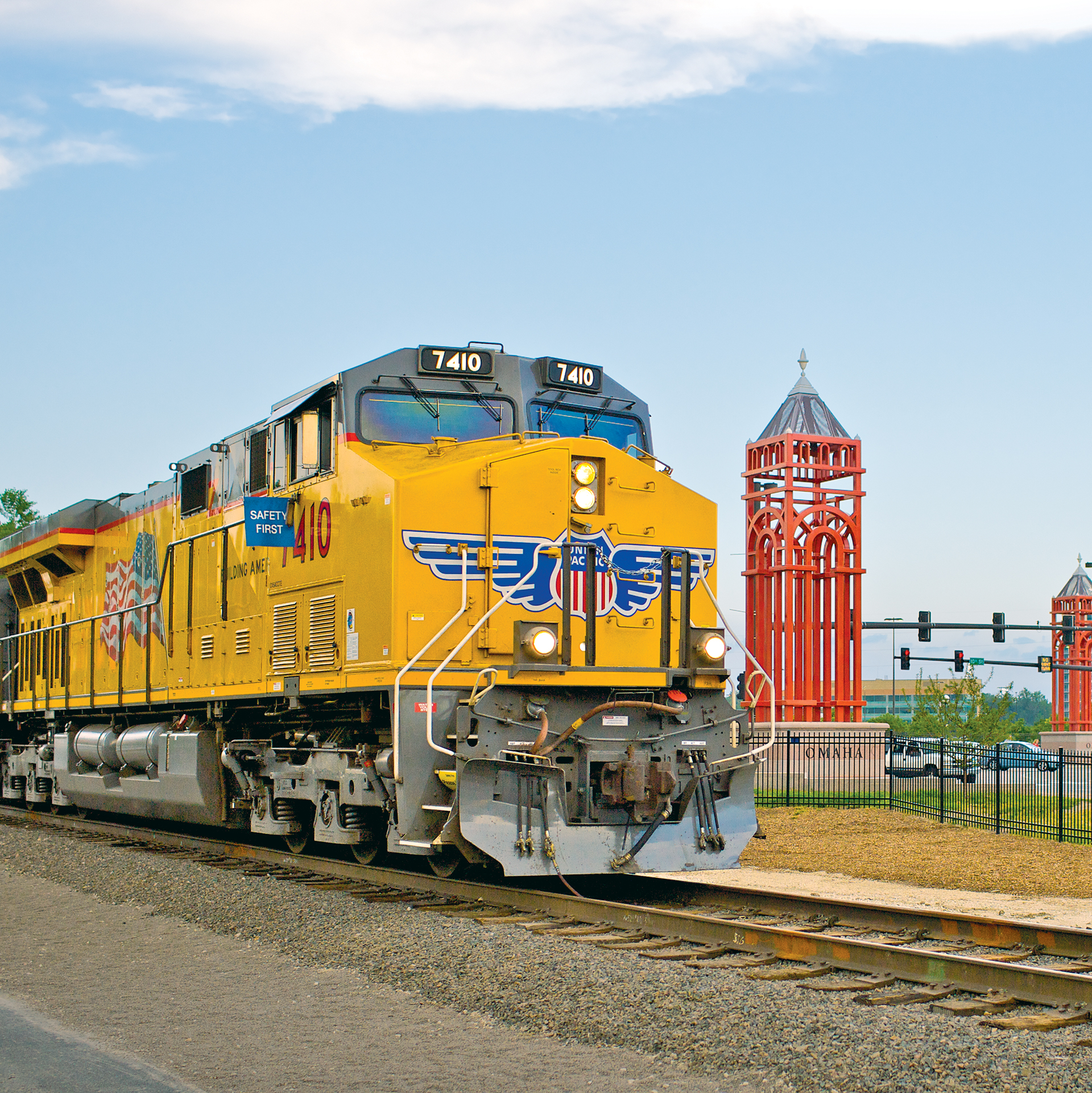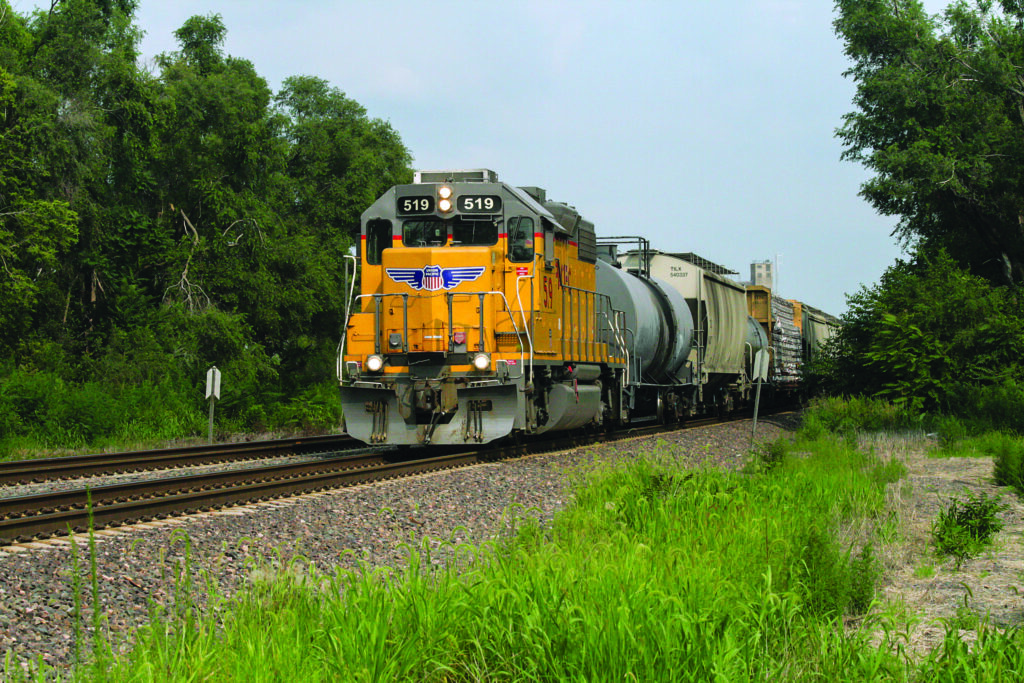Union Pacific Railroad has called Omaha home for nearly 160 years, opening its operational headquarters here less than three years after the company was founded in 1862. It was from Omaha that Union Pacific’s work began in earnest on the construction of the transcontinental railroad, which started in Council Bluffs and finished in Provo, Utah in 1869.
Along the way, Union Pacific helped position Omaha as an economic hub in the Midwest, connecting farmers and businesses to new commercial markets throughout the U.S. Over the years, Union Pacific has grown too. Today, the railroad is one of the largest in the U.S. and operates around the clock on more than 32,000 miles of track in 23 states in the western half of the U.S.
“We are proud of our long history in Omaha, a city that has helped fuel our success and been a welcoming home for thousands of railroaders throughout the centuries,” said Union Pacific President Beth Whited.
Union Pacific employs approximately 33,000 employees, with about 6,000 living and working in Nebraska.
Each year, Union Pacific transports an average of 8 million carloads of goods and products, doing so in all kinds of weather and challenging terrain. There are few products the railroad doesn’t haul in raw or finished format, from the lumber and drywall used to build homes and offices to the corn and wheat used for bread and cereal.
Union Pacific connects businesses in Omaha and around the U.S. to both domestic and global markets, providing key access to Mexico, Canada and international ports including the nation’s largest ports in Los Angeles and Long Beach. Union Pacific is the only railroad to serve all six major gateways on the U.S./Mexican border.
The railroad offers customers an affordable, reliable and sustainable way to move goods over long distances. Railroads are the most fuel-efficient way to transport large quantities of goods over land. One train car can haul the equivalent of three or four semi-trailer truck loads and one train can move a ton of freight roughly 500 miles on one gallon of fuel.
The safety of their employees and the communities in which they operate is Union Pacific’s top priority. The railroad has set a goal of being the safest railroad in North America. To that end, they are enhancing employee training and investing in a safety-focused culture where workers are encouraged to speak up and flag an issue if they see something that concerns them. Empowering employees to actively participate in this safety effort ensures success and boosts morale and professional pride.

“At the end of the day, our goal is to be the safest railroad in America that keeps our communities safe, while ensuring every railroader returns to their family at the end of the workday,” said Whited.
Union Pacific is also committed to providing the excellent service its customers deserve. The railroad is leveraging technology to help deliver on that promise. Recently, Union Pacific made history by becoming the first Class I railroad to modernize its core operating platforms.
“It was years in the making and replaces a half-century old mainframe system. This new trailblazing technology will usher in a new era of railroading, allowing our employees to make quicker and safer decisions using real-time data,” said Whited.
Union Pacific promotes and contributes to Omaha’s vibrant business culture through its involvement with the Chamber.
“The Chamber and its leadership are instrumental in fostering community collaboration on key issues and giving employers a platform to engage on important public policy issues,” said Whited.
“Union Pacific’s railroad tracks connect approximately 7,300 communities in the United States, giving the railroad a wide view of stakeholder engagement at a local level. A high-quality chamber of commerce, like here in Omaha, is an essential element to fostering a strong business climate and promoting economic development,” said Whited.
When asked what advice she would give to other business owners and professionals in the city, Whited said: listen to your employees.
Union Pacific conducts an annual survey of its employees, measuring everything from managerial effectiveness to general company morale. The survey generates valuable feedback that Whited said is used to make improvements and enhance employee engagement.
“The information we get is important to retain our employees and address their concerns, enhancing our culture, ” said Whited.
